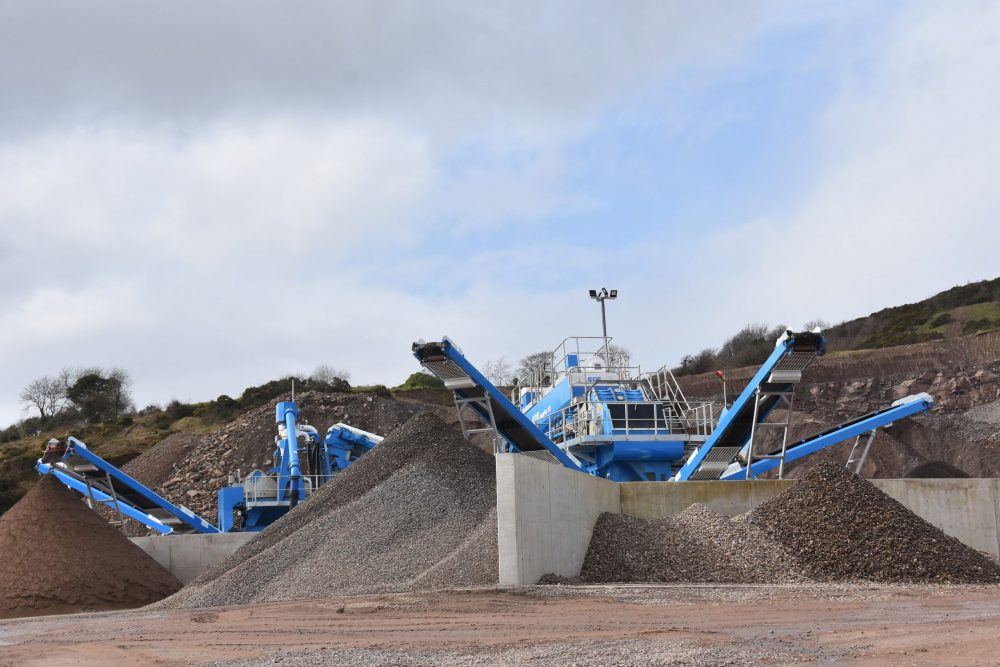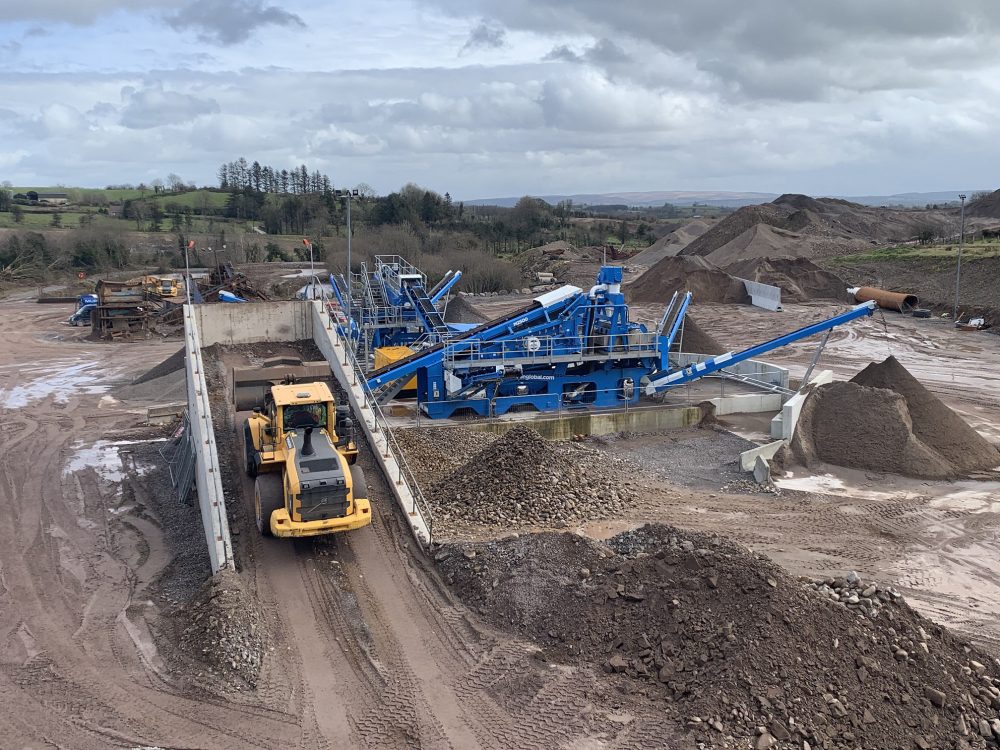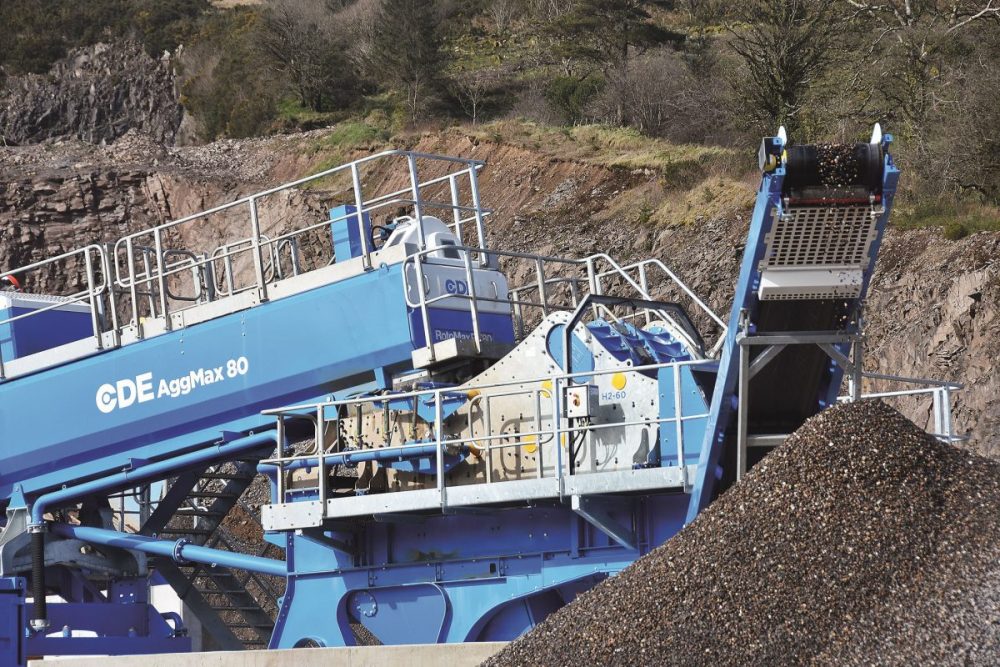Campbell Contracts in Northern Ireland doubles material wet processing with CDE
Campbell Contracts Ltd, a family-owned and managed business headquartered in Tempo, a small village on the outskirts of Enniskillen in County Fermanagh, Northern Ireland, has doubled its materials processing ability since commissioning a new CDE wet processing plant.
Operating from its Letterbailey Quarry, Campbell Contracts has been extracting sand and gravel for over three decades. In recent years it commenced controlled blasting activities and now counts sand, gravel, crushed rock, rock fill and screened topsoil among its growing product range.
In 2019, the Campbell family partnered with CDE, the industry-leading manufacturer of wet processing technologies, to support them to grow the business and diversify its portfolio of high-quality quarried aggregates.

For decades Campbell Contracts had utilised a traditional barrel washer, as company director Brendan Campbell explains: “It was suitable to our business needs at the time it was installed, and it has served us well over its 30 years of service.
“Increasingly, we need to ensure we can recycle and reclaim as much primary aggregate as possible during the quarrying process and the barrel washer had its limitations.”
One of the earliest processes for washing aggregates, the Campbell Contracts barrel washer was efficient when processing cleaner virgin material. Its limitations became evident in its inability to wash heavier, clay-bound materials, rendering them as waste.
“This material was then backfilled into the pits and buried,” Brendan says. “Similarly, the unwashed primary scalpings we generated were inevitably stockpiled as we didn’t have the technology to efficiently process the material.”

Each stage of the quarrying process produces by-products in the form of overburden, scalpings and crushed rock fines. Often, quarry operators classify these as waste materials without commercial market value.
David Kinloch, Regional Manager for CDE in the UK & Ireland, says, “CDE engineers state-of-the-art wet processing technologies that offers quarry operators the solutions to enhance the quality of products they currently produce while simultaneously supporting them to add huge commercial value to their enterprises by ensuring value is extracted from all available material, including those which are too often perceived as quarry waste by-products.”
CDE completed tests at Creagh Concrete on material extracted from the Letterbailey Quarry. Material was analysed and results used to develop a bespoke wet processing system that responds to the needs of Campbell Contracts and would support the family business to stimulate growth.
“This was an important consideration for us,” Brendan says. “CDE understood our operation and what we wanted to achieve with a new wet processing plant. It’s very much a journey and a partnership with CDE that extends beyond the commissioning phase with first class proactive and preventative measures to ensure the plant is operating at maximum efficiency.”
Campbell Contracts’ new 120 tonnes per hour (tph) wet processing plant includes the L35 Feed Hopper, M2500 incorporating the twin-deck P2-75 Infinity Screen and EvoWash, and CDE’s AggMax83, integrating the RotoMax RX80 logwasher and H2-60 Infinity Screen.

The fully integrated, modular plant combines feeding, screening, washing and stockpiling onto one compact and mobile chassis.
With the support of its new CDE plant, Campbell Contracts is successfully processing three materials it previously categorised as waste from its quarrying operations: clay-bound sand and gravel, primary scalpings and crushed rock fines.
Brendan says it has had a transformative impact on the business.
“We’re recovering high-quality materials and value that we had effectively written off as waste. In retrospect, we should have partnered with CDE to commission the plant sooner.”
Virgin sand and gravel feed material is being processed at a rate of 120 tph producing 0-3mm and 0-6mm sand; 6-12mm, 12-25mm and 25-50mm aggregate; and +50mm oversize aggregate for a wide range of applications in the construction industry.

David Kinloch adds, “Campbell Contracts is now processing three grades of material that it historically stockpiled or backfilled. CDE wet processing technology has demonstrated that all quarry by-products have the potential to be processed into marketable products that add significant value to a business.”
Campbell Contracts has operations in civil engineering, quarrying, plant hire and haulage. It is one of Northern Ireland’s leading pipeline contractors, specialising in the installation of large diameter water mains, sewers and drainage systems.
In 2019, company founder Jim Campbell was recognised for his contribution to the industry at the Plant & Civil Engineer Awards.





























